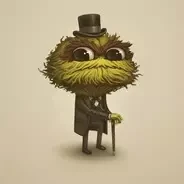Give me your wordplay and obscure culture references, I love them all.
Two divers meet. One say “Hi” the other says “where?!”
Two hunters meet. Both of them are dead.
Both of these work in Swedish as well
Which language of origin?
German:
-
Joke: “Hi” is spoke like “Hai” German for shark. So when two divers meet and one says hi, the other thinks, where is the shark??
-
Joke: “to meet” is translated in german as treffen. Treffen can also the mean to hit. So the joke goes from a freindly meet up between hunters to both of them hitting eachother while on the hunt and dying.
That is so incredibly german, holy shit.
It works in Norwegian as well, both of them.
But for the shark one in Norwegian there’s this one:
What did the sand say to the shark? Hihi
What did the shark say to the sand? Hi sand
isnt it haifisch? rammstein vocabulary sorry
Haifisch is also correct but less commonly used. Sounds a bit old-timey, my first association is Mackie Messer (Mac the Knife): “Und der Haifisch, der hat Zähne”.
that song is actually pretty killer, pun intended…
the rammstein lyrics are also pretty dope:
Und der Haifisch, der hat Tränen Und die laufen vom Gesicht, doch der Haifisch lebt im Wasser – so die Tränen sieht man nicht.
cool little song also
deleted by creator
We also say hai in Finnish for shark
-
[off topic?]
Yiddish. Does not translate to Christian.
Old man goes to the same lunch counter every day and orders the exact same meal every time. Tuna fish salad on rye toast and tomato soup.
One day he walks in and orders his meal. The waiter brings it.
“Waiter, I want you to try this soup.”
“I’m sorry sir, I’ll get you a different bowl.”
“No, I want you to try this soup!”
“I’ll get the manager.”
“No, I want you to try this soup!”
This goes on for five minutes and finally the waiter gives up.
“Okay, I’ll try the soup. Where’s the spoon?”
“Aha!”
I didn’t know this joke had Yiddish origins. Funnily enough, it was told to me by my Jewish grandmother when she was explaining in a convoluted way that I should sweep before mopping 🤣.
One time, between classes we got on the topic of ethnic humor. The guy I told the joke to looked at me like I was insane, but the Russian immigrant woman who overheard it laughed. Someone else told me that Southern US folks would get it.
What really translates here for me is how exhausting customers can be.
If the server forgot to bring a spoon you could have just said that five minutes ago while the soup was still hot.
you could have just said
No, you could not, and that’s what makes it a Jiddish joke. It’s cultural, not linguistic.
FYI…you might want to edit. Or not, because it’s funny that way.
life is like a cucumber, sometime in your hand sometime in your ass. Arabic/Sudanese dialect
el eisha zey el ajoura, mara fi eedak, mara fi teezahk
……
what am i doing with my life 🙈
An Ulster Scots on:
“Ballymena mawn went uptae glens in Canadae yin dae”
“An he saa tae yer man in the pub: What’s that thaer on tha wall?”
"An the publickan saa “Why, That’s a moose”
"Ballymena man saa: “Aye? That a moose? Sure, if thats a moose then yer cats must be wile big!” "
As a Canadian in Scotland, this is the number one joke I’m told by Scots. Closely followed by the statement “I’ve a (cousin/sister/brother/uncle/auntie etc) in Canada.” I swear, it’s probably 1 in 3 Scots with family in Canada.
German joke with word play: " ‘Nur noch schnell einen runter holen, dann ist Mittag’ - Karl Heinz (Flackschütze)"
“Hello, I’d like one of those smurfs from up on that shelf, please.”
“Want me to get one down for you?”
“Sure, if I can get a smurf in return?”Flak ohne ck (von FLugAbwehrKanone)
Får får inte får. Får får lamm.
sheeps don’t get sheeps. Sheeps get lambs.
Får = sheep/to get
var tog vägen vägen? Ute på en åker och åker
where did the road go? Out in a field and driving
“Tog vägen” = literally “took the road”, meaning “where did it go”, sort of. And åker = driving and a farm field.
I got a t-shirt from the Swedish Society for People with Anxiety. It came with a print on the chest.
“print on the chest” would be “tryck för/på/över bröstet” having the double meaning “preassure over the chest”.
Then there are endless of jokes from Gothenburg which all do not translate.
Who is faster, Eminem or Taylor Swift? Eminem, he is a rapper
“rapper” in swedish is “rappare”, meaning also “faster”.
In stockholm a snake escaped the zoo and has not been found. The zoo is missing him a lot
The last bit in swedish would be “saknaden är enorm”, “saknad” being the emotion of missing someone, “enorm” being large/a lot/great. But also enorm=en-orm=a-snake.
Spanish wordplay: ¿Por qué está feliz la escoba? Porque siempre barriendo.
Translation: Why is the broom happy? Because it’s always sweeping (barriendo = sweeping, sounds like va riendo = goes around laughing)
No matter how sloshed you may be, Goethe was a poet.
Tap for spoiler
“Dicht” is a word for “drunk/pissed/sloshed”. “Dichter” is both “poet” and “more sloshed”.
Oh God there are so many of these.
No matter how young your friends are, Jesus’s friends were apostles.
No matter how well you drive, trains drive freight.
No matter how empty you feel, remember, there others who are teachers (this one works out unexpectedly well)
No matter how well you drive, trains drive freight.
I didn’t know that one and it makes me so happyyy yaaay :D
Spanish:
–Señor, mi mamá quiere saber qué vende.
–Dile a tu mamá que ceviche.
English:
–Mister, my mom wants to know what are you selling.
–Tell to your mom that ceviche.
Ceviche is, well, ceviche. In north west of México, we often say “vichi” to say “nude”. “vicharse” would be “get naked”, so “Dile a tu mamá que ceviche” can be a pun for “dile a tu mamá que se viche” (Tell to your mom that get naked)
Que le dijo un pez a otro pez?
Nada!What did one fish say to the other? Nothing(/Swim)!
I get it. The spanish wordt for swimming is “nadar”, which sounds almost the same. Seems like DuoLingo isn’t completely useless after all.
Un león comió jabón. Ahora, es puma/espuma.
I thought I might make a joke about the Deutsche Bahn but I don’t think it would go over well.
Tap for spoiler
Edit: I should add explanations.
“To go over well” in German is “(gut) ankommen”. “Ankommen” also means “to arrive” - which Deutsche Bahn trains are notoriously bad at doing in a timely manner.
Didn’t the German trains have such incredible reliability that they issued apology notes for workers when they arrived late, because bosses wouldn’t believe that’s why someone was tardy?
That’s Japan, unfortunately.
It’s also is Germany (and France, Malaysia, and Singapore). At least according to Wikipedia.
It’s possible Wikipedia is relying on outdated info though.
Who’s the stinkiest Norse god? Gar-loki
Works better in Dutch, I swear
After the workers are finished, Mandy from Saxony comes home to see the result of the house renovation.
The entire floor is covered in white bread.
She shouts “What’s this? I wanted parquet flooring, not baguette flooring!”(Parquet and Baguette are pronounced exactly the same in Saxonian dialect)
“Was ist der Unterschied zwischen Schach und Billard?” - “Beim Schach hat man den Kö nich.”
“What’s the difference between chess and billiards?” - Answer is a pun, can mean both “In chess, you have the king.” and “In chess, you don’t have the cue.” Doesn’t translate at all.
Dutch: Er liep een man in de woestijn en die vond een kameel, maar de kameel vond van niet.
English: A man was walking in the desert and he found a camel, but the camel found he hadn’t.
I don’t know, maybe it works in English too.
I don’t get it, and I speak Dutch…
Sorry, can’t help you there. There’s nothing less funny than explaining jokes, except maybe this joke…
「野菜を食べやさい!」
I think a close-enough approximation (which isn’t close at all) would be “eat your veggies, peas.”
In the garden, there are two chickens.
庭には、鶏が二羽いる。
I almost forgot about that one!
English is squeezing the last scraps of Japanese out of me. :(
Is -やさい just a cheeky pun off of -なさい?











